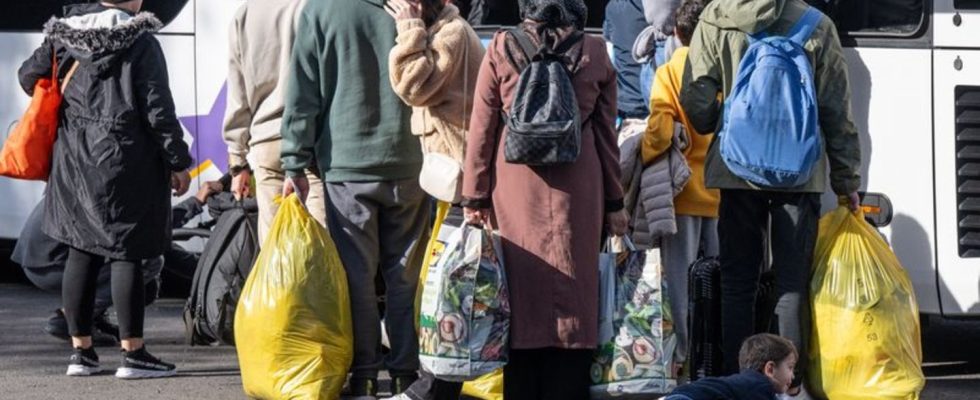migration
Woidke believes that more money from the federal government for refugees is necessary
Federal states and municipalities are demanding more money from the federal government to care for refugees. photo
© Boris Roessler/dpa
Before the meeting of the state leaders with Chancellor Scholz, Brandenburg’s head of government Woidke appealed to the federal government to approach the states on the question of more money for refugees.
Woidke warned that services in the municipalities, for example for the youth club or the library, would have to be reduced in order to finance the accommodation of refugees. “A breathing system is important because it means that the additional burdens caused by the people who come to us can also be absorbed by the municipalities,” he said. The municipalities expected that in the heated political situation they would at least not have to worry about finances.
The Prime Minister said that the states had made a joint effort in October – from Thuringia’s Prime Minister Bodo Ramelow from the Left to Bavaria’s Prime Minister Markus Söder from the CSU – to make a decision. “I very much hope that the federal government understands this signal and that the federal government will implement this decision together with us today,” said Woidke.
Kretschmer for a cross-party solution
Meanwhile, Saxony’s Prime Minister Michael Kretschmer called for a cross-party solution to the problems facing the states and municipalities, but expressed skepticism about the proposals from Chancellor Scholz’s traffic light coalition. “The horizon of expectations on the part of the federal government is so high that we cannot disappoint people now,” warned Kretschmer, who is also CDU federal vice-president, on Monday before deliberations of his party’s top committees in Berlin.
At the same time, the Prime Minister added that “what the government is currently preparing is in no way suitable for limiting the influx into Germany.”
“We as a Union won’t be able to make a lazy compromise to the extent that a little bit of something is whitewashed,” said CDU executive board member Julia Klöckner before the party leadership’s deliberations in Berlin. Her counterpart Jens Spahn criticized: “Everything that has been discussed there so far is not wrong, but it is also not enough to set a clear limit.”
According to the states, the federal government wants to reduce its share from 3.75 to 1.25 billion euros. The countries don’t want to accept this. In a resolution in mid-October, they demanded a flat rate of 1.25 billion euros and at least 10,500 euros per migrant.

